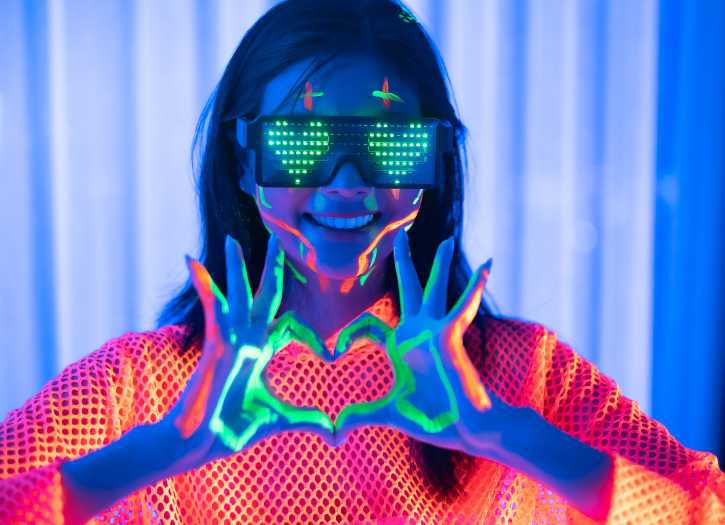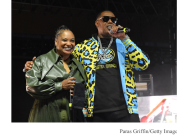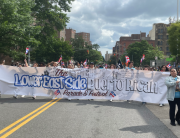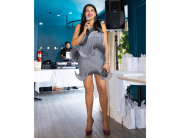Once used to light up nightlife and pop culture in the 1980s, neon has made a big resurgence among Generation Z and millennials. This comeback is a cultural movement that appeals to the younger generation as much as it is a reference to the past. Brands are seizing the chance and using this trend to appeal to youth culture as these generational groups enjoy bold and imaginative expressions.
Neon’s Appeal to Younger Generations
Millennials and Gen Z like their aesthetics, which are bold and new, and neon hues fit perfectly in these parameters. The younger generations prefer authenticity and originality, and they let their choices show off their personalities. Neon has again become a popular choice for fashion and décor as its vibrant, striking colors grab attention visually.
Influence of Social Media
Social media platforms like Instagram and TikTok have made neon aesthetics more and more popular. Users create eye-catching feeds with colorful backgrounds and Instagrammable neon signs that not only support their personal brands but also add to a broader cultural narrative.
Recent statistics show that postings with neon signs or colors have noticeably greater interaction rates, suggesting that these images grab more attention on social media. Millions of posts with the hashtag #neon have been trending recently on social media. These posts feature everything from fashion statements to cafes with neon lights.
You must have seen many influencers promoting their social media handles or personal brands with neon signs in the background of their posts. Neon signs by CRAZY NEON® are trending all over social media.
Increasing Social Media Engagement
Neon-colored material usually gets more likes and shares than content with other low-visibility color schemes, according to social media metrics. As an example, brightly and vibrant colored photos on Instagram have been found to boost interaction. This trend clearly highlights the significance of visual appeal in digital communication, especially for younger audiences who are more inclined to share visually appealing content.
“Instagrammable” Space
A whole new category called “Instagrammable” decor and ambiance has emerged among GenZ and millennials recently. This is a result of the popularity of neon-lit establishments like cafes, clubs, and art exhibits. Neon signs are frequently used as photo focal points in these spaces. These spaces are especially decorated keeping social media sharing in mind. As seen on social media, while picking a location, most of the Gen Z respondents give priority to an aesthetically pleasant environment.
Brands Utilizing social media trends
Now seeing the upsurge in neon color use on social media and its benefits, the brands are deliberately using neon to appeal to their consumers. One such brand is Maybelline, which has launched its iconic products in neon packaging, catching the nostalgia and the interest of GenZ.
Influencer Collaborations Trends
Influencers that represent the colorful lifestyle linked to neon aesthetics are increasingly being partnered with brands. These collaborations frequently lead to advertising campaigns that emphasize vibrant hues. It just means that neon is a lifestyle statement rather than just a color scheme.
Cultural Effect
Modernity with Nostalgia
The revival of neon fits into a larger trend where younger generations are embracing contemporary values like sustainability and inclusivity while yet enjoying historical trends. Neon colors evoke nostalgia for past decades while simultaneously enabling personal transformation in the present. This dynamic blending of the ancient and the contemporary creates a unique cultural phenomenon.
Expressing Individuality while Fostering Community
Young people use neon as a means of self-expression since they frequently use color to convey their identities and connections. Bright colors are used in design and fashion to create a sense of community among people with similar likes. In these communities, social interaction and teamwork are promoted via events like pop-up markets and themed parties with neon décor.
Conclusion
Neon’s comeback among Gen Z and Millennials is a complex phenomenon that reflects larger cultural trends. Its appeal stems from its capacity to represent uniqueness, creativity, and community, all of which are accentuated by the dynamics of social media. Companies that embrace this trend are doing more than just marketing goods; they are participating in a thriving cultural movement that honors color as a means of self-expression. Neon will probably continue to be a timeless symbol of youthful energy and inventiveness as these generations continue to influence culture.







Add Comment
You must be logged in to post a comment.